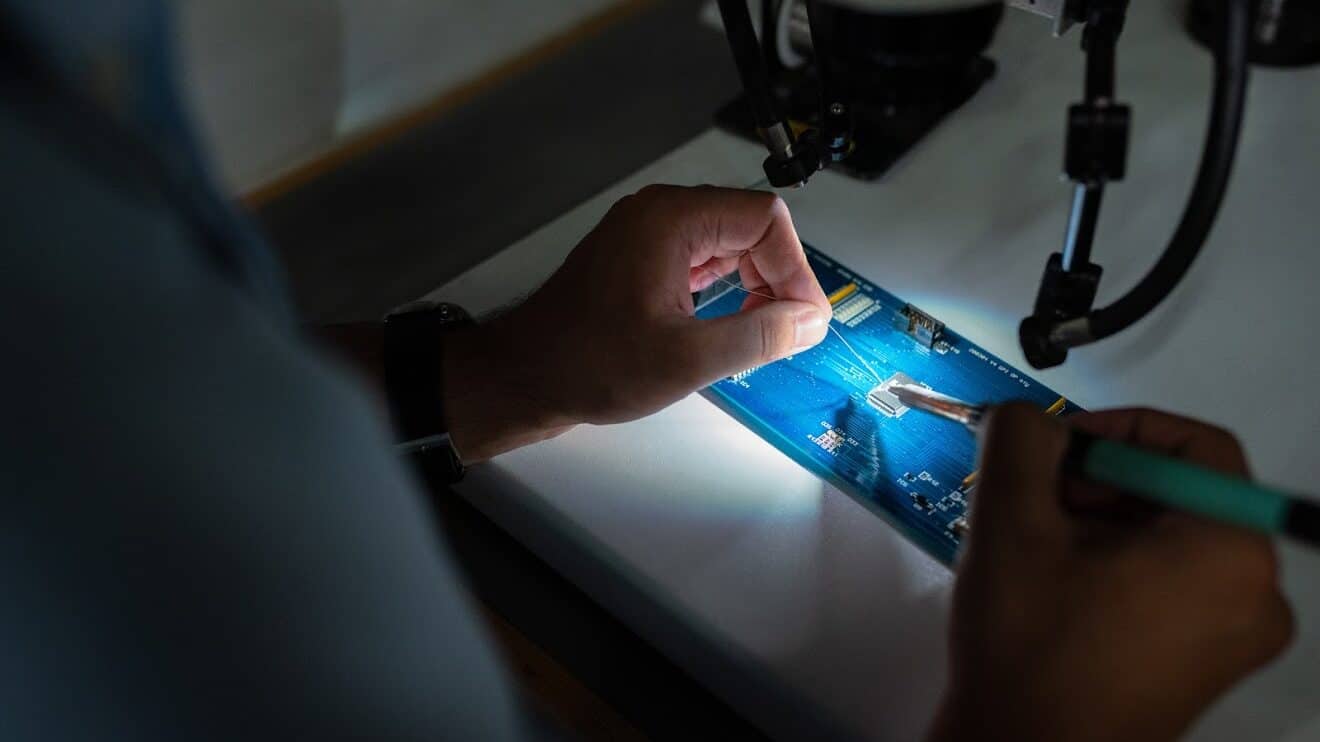Entrepreneur, investor, and mother of three, Vvivi Hu has been part of Verve Ventures’ community for a long time. In this interview, she talks about how a venture capitalist mindset helped her become a better investor, why startups need to think global from day one, and why there are more female investors and entrepreneurs in China than in Europe.

Angel Investor
Vvivi Hu is an active angel investor in Europe and Asia since 2013. She has invested in about a dozen startups via Verve Ventures. Vvivi has worked as a consultant for BearingPoint and McKinsey in China, was an entrepreneur, and worked for over 4 years for eBay in Greater China and Europe. Vvivi is a board member of the Harvard Club of Switzerland and Harvard Business School Club of Shanghai.
You look back on an international and quite diverse career. Why did you decide to move to Europe from China?
I started my career as a consultant in tech and healthcare. When I did an MBA at Harvard, it opened my mindset to a global one and to entrepreneurship. Back in China, I founded a home decor retail business, co-founded an advisory business focusing on venture incubation in a large organization, as well as jump-started the Miss Universe China pageant business. After exiting, I worked as an entrepreneur in residence for a buyout fund and focused on distressed assets, that’s when I got interested in Europe. A mentor who was also a headhunter recommended me to the opportunity in eBay. Initially, I thought I wouldn’t stay that long as I am always an entrepreneur at heart. Yet the great team and culture there influenced me a lot and the company offered me non-stopping development opportunities. Still at eBay, I decided to come to Switzerland to place the European puzzle in my global experience. I love European culture and skiing in Switzerland is great (laughs).
You told me that you are an entrepreneur at heart. What is exciting about entrepreneurship?
First and foremost, it is a challenging journey. You start without many resources, without a brand and platform, and you need a lot of resilience and adaptability. But it is very rewarding when other people start to believe in you and your idea, not just investors, but also your team, vendors, customers. Even when I was an employee, I wanted to connect to this world of entrepreneurship, which is why I joined the AngelVest in Shanghai. It is great to connect with like-minded investors, you get a sense of belonging.
Why invest in startups?
When I look at the innovation that high-tech startups bring to the world, I’m confident that investing in them has a positive impact on human life, something that I deeply care about. Dealing with startups keeps me up to date about technological developments and trends, which also informs the way I think about the public equities I invest in. I apply a VC mindset and look beyond the profit and loss statement and balance sheet to assess if a company is on the right track in a booming industry or not, and I prefer public companies that are still led by their founders. Using this startup investing lens for public markets has given me great returns. I have a concentrated portfolio that I hold for a long time. Coming back to your question about startup investing, I think you need to invest in a meaningful number of startups because many of them will fail. And to start investing, you need faith that goes beyond the potential financial returns, you need the conviction that you’re supporting a good cause. That being said, I like the fact that with startup shares you don’t see their price fluctuations, you won’t be nervous and will thus hold longer term for better returns.
There are many more male startup investors and founders than women. How do you explain that?
The Harvard circle is a miniature version. When I go to events of the Harvard Club in Switzerland, the majority of attendees are male over 50. Interestingly enough, that ratio is quite different in China. In Shanghai, it is way younger and almost gender-equal, and many entrepreneurs are in their 20ies or 30ies. China doesn’t have the same social legacy as Europe. In Europe, the expectation that women stay at home especially after they have kids is still palpable, and for women who don’t want that, the support system is available, yet expensive. For an average income in Switzerland, the economics already doesn’t work out when you have two kids. Child care and nannies are very expensive compared to China, or even to other neighboring European countries. In China, there is less social security, every woman needs to work or start a business and is expected to do so, and many couples found companies together. And the grandparents are always more than happy to help.
Studies have shown that parenthood leads to an increase in risk aversion for both men and women, an effect that disappears when children grow older. You became a mother 3 years ago. How has that changed your outlook on investing?
Having kids certainly changes your life and thinking, but it doesn’t mean that you should stop doing what you’re good at, otherwise you risk becoming stagnant. Just consider the speed at which the world has changed during the pandemic. If you’re not open to new ideas you become irrelevant. As a mum, I want to educate my kids as good as I can and be able to talk to them about things that will be relevant to them decades ahead, so this year I am conscious to look into the digital consumer area that I would consider “for young kids” and usually ignore. For the time being, I’m happy with my portfolio and enjoy watching it grow. With venture capital you’re in for a long term, startups need many years to mature. As they say, the best time to plant a tree is ten years ago, the second-best time is now.
“I decided to stick with Verve Ventures since the deal size and quality as well as the support system was more what I was looking for.”
How did you learn about Verve Ventures?
When I came to Switzerland I wanted to look at startups in Europe and Switzerland. A friend of mine who works at a family office suggested that Verve Ventures was the best place to start, having a good deal flow and community. I joined Verve Ventures and another platform and eventually decided to stick with Verve Ventures since the deal size and quality as well as the support system was more what I was looking for.
What are you looking for in venture capital?
I was quite focused on DigiTech and enterprise software, but I grow more interested in healthcare and biotech after moving here. Switzerland has a lot of talent in this field and a strong research base. Another topic that I am looking into is green infrastructure, where Europe has a global lead with the Green Deal. A lot of money will flow in this sector. Smart buildings, the internet of things, cybersecurity, are interesting topics to follow as well. I’m not interested in anything where I don’t see a positive impact, and I don’t invest in venture platform businesses and moonshots that will die if they don’t get huge funding. Not my risk profile. I prefer companies with strong IP that are likely to achieve an exit through a trade sale. But again, pure financial motivation won’t get you through the difficulties that startups will inevitably face, you need to have a firm belief that you’re backing a venture that is doing the right thing.
You have an extensive professional network in China. Interestingly enough, many European startups plan their expansion in concentric circles, few eye the US as a market and even less look at Asia if they’re not forced to do it because their customer base is centered there. What’s your take on this?
There is a certain cautiousness with European entrepreneurs. In a way, I like that, because a low-risk approach might be more prudent and sustainable. China is an opaque market with many hurdles. Even big companies have failed to enter this market. But sometimes I feel entrepreneurs here aren’t hungry enough, they’re happy to build a solid business in a few countries in Europe and that’s it. The mindset in China is different, everyone is running so fast that if you want to live better than average you have to take a lot of risks, which makes people more audacious. Also, they don’t have much to lose.

Invest in Startups
As one of Europe’s most active venture capital investors, we grant qualified private investors access to top-tier European startups. With investments starting at EUR/CHF 10’000, you can build your own tailored portfolio over time and diversify across stages and sectors.
What is your advice for founders with global aspirations?
I think they need to go about building their company with a global mindset from day one. The way they hire, outsource and set up their teams needs to reflect that ambition, as it’s very hard to change a very local organization and culture later on. And they shouldn’t forget that expansion isn’t a one-way street. There is a lot of appetite from Chinese investors to gain a foothold in European tech. A joint effort with them could help startups attain a presence in Asia. I’m happy to help startups with finding growth-stage investors, experts, or joint venture partners in China.
Coming back to the topic of investing in startups: who do you think this is for, what is the profile of someone who should get involved?
I’ve convinced many friends who aren’t entrepreneurs themselves to invest. It is inspiring to be involved in a potential success story, and I think that everyone has this itch for a sense of belonging. I recommend startup investing to everyone who has a bit of experience with investing in public markets. If you’re not a professional venture capitalist and lack a deal-sourcing network, communities like Verve Ventures are a great place to start because the pooling effect with other investors allows you to get into bigger and better deals and worry-free deal administration. I like the investor meetings at Verve Ventures because you can learn from other investors by listening to the questions and find your own loopholes in thinking. But in the end, to get real, at one point you need to make your first investment. If you look at the bigger picture, I also see startup investing as a way to experience the ups and downs of entrepreneurship, which is a much more meaningful way to use your money than the prevailing consumerism. Instead of buying even more expensive shoes, clothes, and cars, with startups, you’re not just buying a financial instrument, you are investing in a memorable experience.
Written by
WITH US, YOU CANCO-INVEST IN DEEP TECH STARTUPS

Verve's investor network
With annual investments of EUR 60-70 mio, we belong to the top 10% most active startup investors in Europe. We therefore get you into competitive financing rounds alongside other world-class venture capital funds.
We empower you to build your individual portfolio.
More News
04.01.2021
Founders investing in founders:
Stefan Brunner
In this series, we portray successful founders that invest through Verve Ventures in the next generation of founders. We start with Stefan Brunner, who exited two companies already and is now an active business angel.
25.08.2020
Why invest in startups?
The high expected returns are an important reason why people invest in startups, but that’s not the only reason.
04.01.2019
“I’m interested in everything technical”
Business angel Oliver Weidmann was always eager to try out new things. He tells us how he invests in startups, what a good entrepreneur needs, and what the upside of failure is.
Startups,Innovation andVenture Capital
Sign up to receive our weekly newsletter and learn about investing in technologies that are changing the world.




